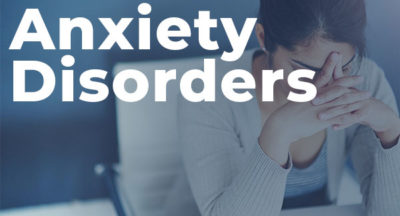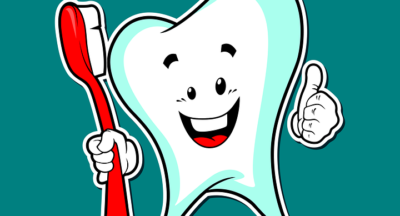The many faces of anxiety: Does the latter affect more than just the brain? Is it just mental or the physical gets affected? Let’s tackle each spectrum.

Anxiety is a complex condition that impacts more than just the brain, with both mental and physical symptoms affecting many areas of a person’s life. If not promptly and effectively treated with medication or psychotherapy, anxiety can lead to long-term consequences. Ignoring the symptoms can result in not only mental but also physical and social issues. Let’s examine how anxiety affects different dimensions of health and well-being.
Mental and Emotional Effects
- Cognitive Impairment: Anxiety can significantly affect cognitive functions such as memory, attention, and decision-making. People with anxiety often experience racing thoughts, difficulty concentrating, and intrusive worries, which can impair their ability to function effectively in daily tasks and professional responsibilities.
- Emotional Distress: Anxiety disorders often come with heightened emotional sensitivity. Individuals may feel overwhelmed, fearful, and experience mood swings. This emotional distress can lead to irritability, frustration, and a general sense of unease, making it challenging to maintain emotional stability.
Physical Effects
- Cardiovascular System: Anxiety triggers the body’s “fight or flight” response, which can lead to increased heart rate, palpitations, and elevated blood pressure. Chronic anxiety can contribute to long-term cardiovascular issues, including heart disease and hypertension.
- Respiratory System: Anxiety can cause rapid, shallow breathing or hyperventilation, leading to respiratory problems. People with anxiety may feel short of breath, even when there is no physical exertion, exacerbating feelings of panic and discomfort.
- Digestive System: The gut-brain connection is well-documented, and anxiety can significantly impact the digestive system. Symptoms such as nausea, stomach cramps, irritable bowel syndrome (IBS), and changes in appetite are common. Chronic anxiety can disrupt normal digestive processes, leading to long-term gastrointestinal issues.
- Musculoskeletal System: Anxiety often leads to muscle tension, resulting in aches, pains, and headaches. Chronic muscle tension can contribute to conditions like tension headaches, migraines, and musculoskeletal pain, further affecting physical well-being.
- Immune System: Chronic anxiety can weaken the immune system, making individuals more susceptible to infections and illnesses. The constant state of stress associated with anxiety can reduce the body’s ability to fight off pathogens effectively.
Social and Behavioral Effects
- Social Interaction: Anxiety can severely impact social interactions and relationships. Individuals may avoid social situations due to fear of judgment or embarrassment, leading to isolation and loneliness. This social withdrawal can exacerbate feelings of anxiety and depression, creating a vicious cycle.
- Behavioral Changes: Anxiety can lead to various behavioral changes, such as increased reliance on substances like alcohol or drugs as coping mechanisms. It may also result in unhealthy habits like overeating, smoking, or excessive caffeine consumption, further affecting overall health.
- Sleep Disturbances: Anxiety often disrupts sleep patterns, leading to insomnia or poor-quality sleep. Lack of restorative sleep can worsen anxiety symptoms, reduce cognitive function, and negatively impact physical health.
Addressing Anxiety Holistically
- Mental Health Support: Seeking professional help from therapists or counselors can provide valuable strategies for managing anxiety. Cognitive-behavioral therapy (CBT), mindfulness, and other therapeutic techniques can help individuals understand and manage their anxiety better.
- Physical Health Interventions: Regular exercise, a balanced diet, and adequate sleep are crucial in managing anxiety. Physical activity releases endorphins, which can help reduce anxiety symptoms, while a nutritious diet supports overall well-being.
- Social Support: Building a strong support network of friends, family, or support groups can provide emotional support and reduce feelings of isolation. Sharing experiences and coping strategies can be beneficial in managing anxiety.
- Lifestyle Changes: Incorporating relaxation techniques such as yoga, meditation, and deep-breathing exercises can help reduce stress levels. Reducing caffeine and alcohol intake, establishing a regular sleep routine, and practicing self-care can also significantly impact anxiety management.
Anxiety is a complex condition that impacts both the mind and body. Recognizing its multifaceted effects can enable individuals to seek the right interventions and adopt strategies to manage anxiety effectively, thereby enhancing overall quality of life. Don’t let anxiety dominate your life by taking over your mind and body. Numerous treatments and mental health professionals are available to provide talk therapy and coping mechanisms. Staying silent about your mental health won’t help; not speaking out can have long-term detrimental effects on your well-being. Reach out to community members for support and ask your doctor for mental health referrals. Take steps to improve your well-being.

dr.dan
Related Posts
Some of the many facets of anxiety: Understanding “avoidance behaviors” from those who practice it daily and the ways to work with their anxiety.
Avoidance behavior (A.B) is a common but often misunderstood response to...
Facts About Anxiety Disorders That You Need To Know
Anxienty disorders is something typical to feel when somebody faces what is...
Here are some simple approach to overcome low Self-Esteem, also called Them-esteem.
The word esteem comes from latin, mean Estimate, allowing others to estimate...
Anxiety and dental care: The double-edge sword between optimal oral health and mental trauma
The connection between anxiety and oral care is a widespread phenomenon...




